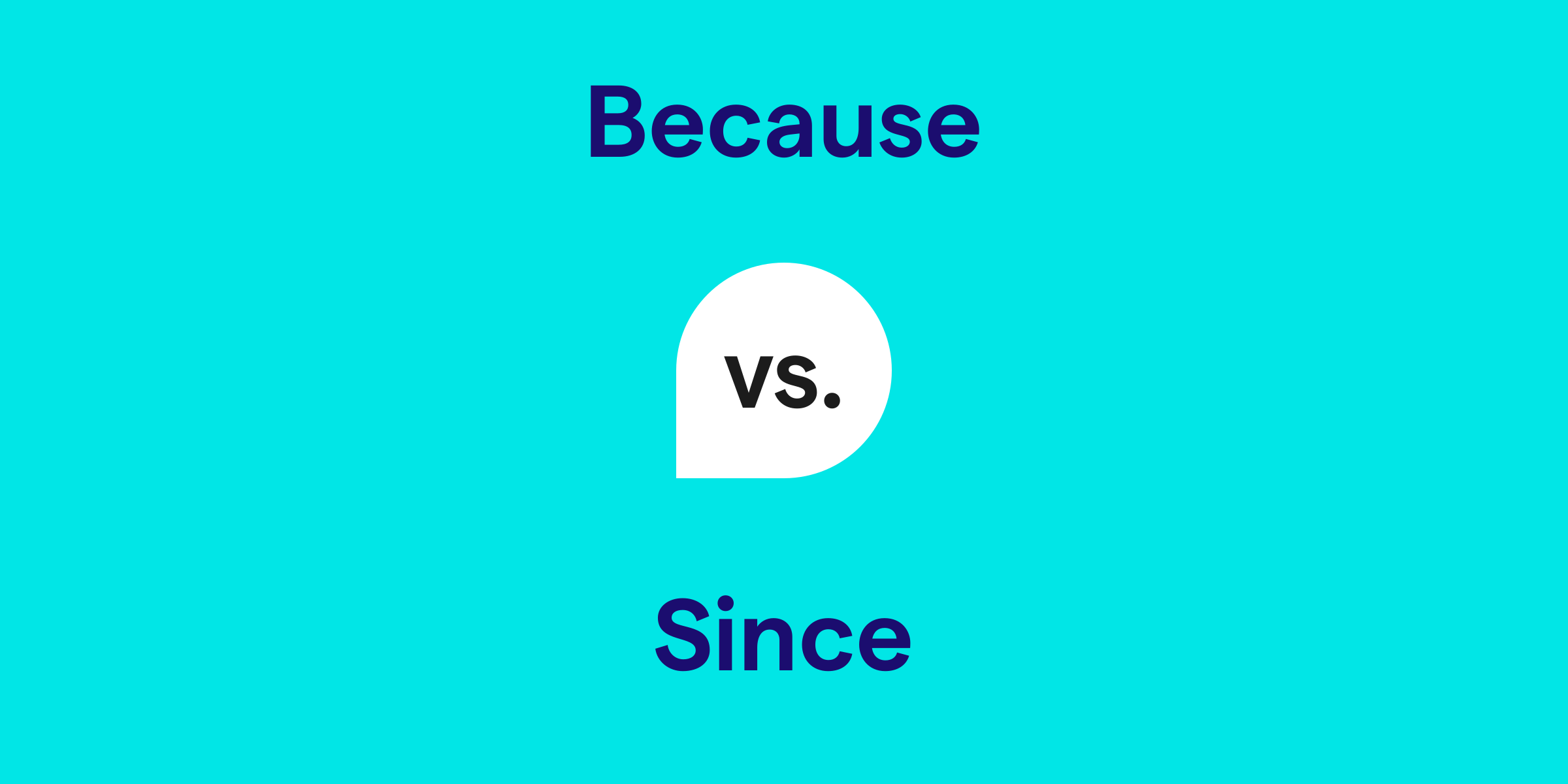Because vs. Since: What's the Difference?
Because and since are conjunctions used to introduce subordinate clauses, but they differ in their usage and the emphasis they carry. Because is typically used to indicate a direct cause and effect relationship, strongly emphasizing the reason behind an action. On the other hand, since tends to suggest a time element and can provide reasoning that is less forcefully tied to an event, often indicating that the reasoning is already well known or presupposed.

How do you use the word because in a sentence?
The word because is used to clearly present the reason or cause for a situation or action. It precedes an explanation or justification and is typically followed by a complete clause. Because creates a strong, explicit link between the cause and effect and is preferred when the reason is the main focus of the sentence.
Examples of because in a sentence
- She decided to take the day off because she was feeling unwell.
- We canceled the trip because of the impending storm.
- He received a commendation because his work exceeded expectations.
How do you use the word since in a sentence?
The word since is specifically used to reference the start point of an action or event that continues into the present. It often follows a perfect or perfect continuous tense verb and is typically used when the focus is on the continuation from a certain time rather than the duration.
Examples of since in a sentence
- He has been working at the company since 2005.
- Since the start of winter, the nights have been very cold.
- I haven't seen her since last year.
Because and since definition, parts of speech, and pronunciation
Because definition:
Because is a conjunction that introduces a clause explaining the reason or cause for the action mentioned in the main clause.
Because parts of speech:
Because pronunciation:
The word 'because' is phonetically pronounced as /bɪˈkɔːz/.
Since definition:
Since, when used as a conjunction, can indicate that something has been true from a particular time in the past until now, or it presents a reason or cause similarly to because.
Since parts of speech:
Since pronunciation:
The word 'since' is phonetically pronounced as /sɪns/.
Because is a conjunction that introduces a clause explaining the reason or cause for the action mentioned in the main clause.
Because parts of speech:
- The students were excited because the school trip was approved.
Because pronunciation:
The word 'because' is phonetically pronounced as /bɪˈkɔːz/.
Since definition:
Since, when used as a conjunction, can indicate that something has been true from a particular time in the past until now, or it presents a reason or cause similarly to because.
Since parts of speech:
- It's been a week since we last spoke.
- Since it's raining, we should cancel the picnic.
Since pronunciation:
The word 'since' is phonetically pronounced as /sɪns/.
Because vs. since in a nutshell
To summarize, because serves to establish a clear, direct cause-and-effect relationship, strongly emphasizing the motivation for an action. Since also introduces reasons but leans toward providing a temporal or less forceful explanation. While because asserts reasons with emphasis, since may subtly indicate that the rationale is assumed to be known. When using these words, it's important to choose the one that best fits the desired nuance of explanation or timing in context.
Get AI Writing Assistance Wherever You Type
Make sure your vocabulary is on point and every punctuation mark is in the right place, no matter where you’re working. Grammarly works across more than 1 million websites and apps so you can improve your writing without copying, pasting, or breaking focus.

More Commonly Confused Words
Interest piqued? Pore (not pour) over other commonly confused words to help your writing reach peak (not peek) performance.